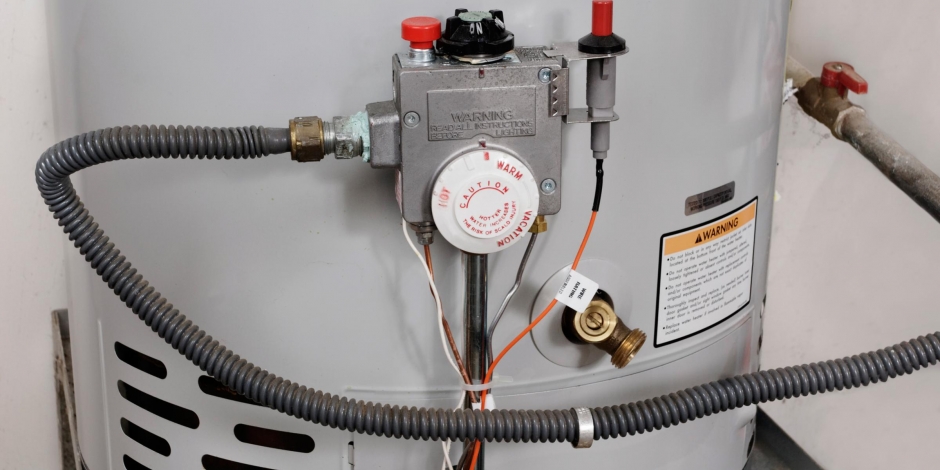Charles
The perfect contractor
- Fair price.
- Well planned.
- Professional staff from top to bottom.
- Makes good on any unforeseen issues (trustworthy).
Thank you.

At Residential Heating and Air Conditioning we are certified professionals trained in building science utilizing the House-As-A-System concept. That means we treat your home and the systems in your home as an interactive set of elements that should be optimized and balanced to provide you & your family with maximum comfort for the minimum in total cost over the life of their service. Often the lowest total cost isn’t the cheapest to purchase. We know from experience that this statement is never truer than when deciding on a water heating system for your home. As such, we work with you, our clients to sort through the potential solutions to arrive at the best solution for you. We’ll do that by talking with you about your hot water usage and factor in you and your family’s unique set of circumstances, types of fixtures and your needs.
So, in a broad sense then, let’s take a look at what water heating systems are currently available:
Conventional storage tank water heaters remain the most popular type of water heating system for the home. By choosing the most energy efficient model you can save up to 40% versus the typical models available just a few years ago. They operate by releasing hot water from the top of the tank when you turn on the hot water tap. To replace that hot water, cold water enters the bottom of the tank, ensuring that the tank is always full.
Conventional storage water heater fuel options include natural gas, propane, fuel oil, and electricity. Typically, a storage tank water heating system isn’t the most efficient choice. This is because the water is constantly being re-heated in the tank, wasting energy whenever there is no demand for hot water. This is called standby heat loss. Only tankless water heaters—such as on-demand water heaters and tankless coil water heater systems completely avoid these losses. A solar Water heating system will also greatly reduce these losses as well.
However, you can find some storage water heater models with heavily insulated tanks, which significantly reduce standby heat losses, lowering annual operating costs.
Gas and oil water heaters also have venting-related energy losses. Two types of water heaters—a fan-assisted gas water heater and an atmospheric sealed-combustion water heater—reduce these losses. The fan-assisted gas water heater uses a draft-induced fan that regulates the air that passes through the burner, which minimizes the amount of excess air during combustion, increasing efficiency. The atmospheric sealed-combustion water heater uses a combustion and venting system that is totally sealed from the house. Because of these losses Residential Heating and Air Conditioning would typically recommend more efficient alternatives.
Two excellent choices are heat pump water heating systems and solar water heating systems:
These water heating systems are usually more expensive to install but often more than make up for the cost when their lower annual operating costs are taken into account.
A tankless coil water heater or on-demand water heating system uses a heating coil or heat exchanger installed in a mini boiler. Whenever a hot water faucet is turned on, the water flows through the heat exchanger in the mini boiler. As such, these water heaters provide hot water on demand without a tank, but because they only rely on using energy to heat water as needed, tankless coil water heaters only heat the water once, flowing directly to the faucet that requested it. That may sound like the most efficient choice but higher maintenance and other considerations often cause them to fail requiring replacement at a much higher frequency compared to other solutions. This fact combined with their high initial costs and their potentially costly installation often raise their total cost of ownership but each situation is different and sometimes the tankless option is the best choice, especially in warmer climates like ours as long as the unit can be mounted in an accessible location allowing for ease of access for the higher routine maintenance required.
At Residential Heating and Air Conditioning our training in building science (“House-As-A-System”) has great value in helping our clients when it comes to selecting the best hot water heating system for their homes.
For instance, we know that the lowest upfront cost water heating system is also likely to be the most expensive to operate and maintain over its lifetime. While an oversized unit at 80 or more gallons may be enticing to fill that spa style tub, we know that it also carries a higher purchase price and increased energy costs due to significantly higher standby energy losses.
When advising our clients in the area of adding or replacing a hot water heating system we consider the following:
But above all, we know that your needs and situation are unique to you. Contact us to find out more so we can learn more about your situation to be able to advise you on the options available that meet your criteria.
The perfect contractor
Thank you.